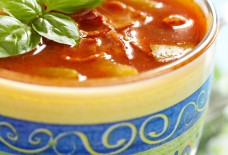Arabic Roots of Afrikaans Laid Bare in New Book
SOURCE: IOL
BY: YAZEED KAMALDIEN
Cape Town – Research into early Afrikaans by the late Bo-Kaap historian Achmat Davids has been revived in a new book that debunks stereotypes about the language.
The book, Die Afrikaans van die Kaapse Moslems, was originally published as a Master’s thesis in English.
Professor Hein Willemse, head of literacy in the Afrikaans department at the University of Pretoria, has selected extracts of the original text and translated it into Afrikaans to “make it accessible to a broad audience”.
The book includes texts written in the Arabic alphabet which, when spoken, sound like Afrikaans. These documents, referred to as Arabic-Afrikaans texts, were recorded in the old colonial slave quarter now known as Bo-Kaap. Willemse says the texts show the “oldest dialect of Afrikaans”.
“This shows that Afrikaans is not the history of only one group of people. The slave community from South-East Asia made a great contribution to this language. The imams (religious leaders) of the Bo-Kaap were writing Afrikaans in Arabic as early as the 1820s. They had studied in Afrikaans at that time. The imams were developing a standard Afrikaans in Arabic. They created the language. In various parts of the world people have used Arabic to write in a local language.”
Willemse said when Davids first published his thesis in the 1990s it challenged Afrikaner nationalist ideologies by showing the language did not belong only to white people.
“In the linguistic world, Afrikaans has been viewed as a language that evolved out of creolisation. But Afrikaner nationalist academics played a role in a deliberate process to keep it viewed as Dutch,” said Willemse.
“But in this language are words that come from South-East Asia and that formed in the mouths of people in the Cape. We have adapted those words and made it part of Afrikaans.
“This shifted the perspective that Afrikaans is a white language. The colonised people of the Cape had played a major role in developing Afrikaans.”
While Davids’ study has not gained much traction, Willemse said it “brings to the fore the contributions” of the Cape’s early Muslims to Afrikaans.
“People who were colonised and enslaved found new ways of communication… The history of Afrikaans is also one of struggle and resistance.
“There was activism in this language against the Cape Dutch colonialists. Afrikaans is part of our early history as people of colour.”
Willemse said there are also Khoi influences in Afrikaans, which needs exposure. “If you take the word ‘eina’, this is a Khoi word,” he said.
Kammie Kamedien, a Capetonian archival researcher, said the original texts show that Afrikaans was the “language of the underclass”. “The future of this language is always going to be preserved by the working class. That is how the language has survived all this time.”









